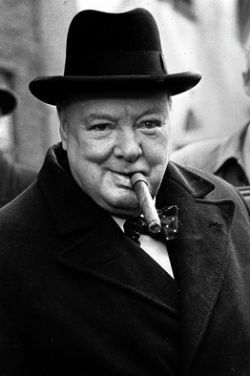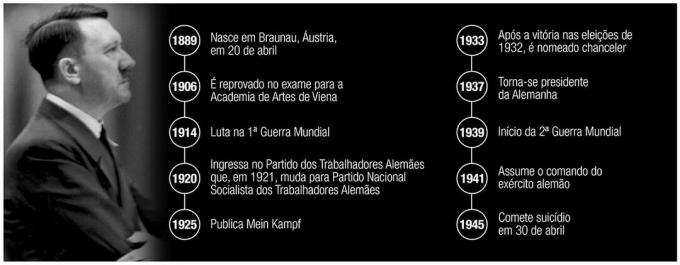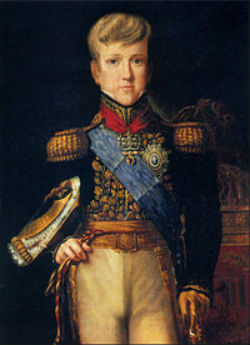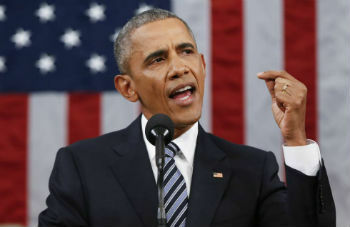Winston Leonard Spencer-Churchill (1874-1965) was a British politician and prime minister of Great Britain.
He was one of the most emblematic figures during World War II (1939-1945) in embodying Allied resistance to Nazism.
Biography

Winston Leonard Spencer-Churchill was born on November 30, 1874 at Blenheim Palace in the English city of Woodstock. His father, Lord Randolph Churchill was English and his mother, Jennie Jerome, American.
From a wealthy family, Churchill had a strict upbringing in Dublin, Ireland. He later followed the military career and in the footsteps of his father. His father held positions in politics, standing out as Minister of Finance.
Churchill served in the British Army from 1895 to 1924, graduating Lieutenant Colonel at Sandhurst Military Academy.
He joined the Conservative Party and held political positions in his country while this party was in government as Secretary of State, Deputy, Chancellor of the Treasury, etc.
He was Minister of Finance, Trade, Defence, Colonies, Munitions and finally Prime Minister of Great Britain.
He was active in the Boer War (in Africa), the War in Cuba, India and South Africa. Furthermore, he served as First Lord of the Admiralty in World War I.
In World War II he was elected Prime Minister of the United Kingdom in 1940 and stood out for his intransigence towards Nazism. On the other hand, he had to keep the hopes of the British people and made speeches that were followed by the entire population.
At this time, he formed ties with the President of the United States Franklin Roosevelt, as the United Kingdom depended directly on American cooperation in order to resist German attacks.
Churchill was an accomplished orator, being known for his nationalist speeches that preached peace.
Due to the publication of his articles and works, he received the Nobel Prize for Literature in 1953. In 1955 he resigned as Prime Minister, delivering a grand speech entitled “never despair”.
Churchill died in London on 24 January 1965.
First World War (1914-1915)
Churchill served as First Lord of the Admiralty and was responsible for the modernization of the British Navy. In this sense, he promoted the switch from the use of coal to oil in order to make ships more efficient and faster.
On the other hand, he was behind the disaster of the Battle of Gallipoli where 200,000 British and their Australian and New Zealand allies lost their lives due to a strategic error. Due to the disaster, he resigns, but months later he offers to fight in France.
Read more: Major Battles of World War I
Second World War (1939-1945)
After Minister Neville Chamberlain failed in negotiations with adolf hitler, conservatives return to government with Winston Churchill at the head.
Its policy of intolerance towards the Nazis, its strategic alliance with Stalin and the support of the Americans made Churchill respected and admired the world over.
Although England was heavily bombed, Churchill went on the radio and made his famous "We will never surrender" speech:
We'll fight to the end, we'll fight in France, we'll fight in the seas and oceans, we'll fight with increasing confidence, and increasing strength in the air!
We will defend our island, whatever the cost! We'll fight on the beaches, we'll fight on the airstrips, we'll fight on the fields, and on the streets, we'll fight on the mountains. We will never surrender!
Funeral

Churchill's funeral brought together leaders from several generations who came to pay their last respects to the statesman who helped Europe in its darkest hour.
The population also flocked to see the funeral procession. To this day, Churchill is cited as a paragon of statesmanship.
Construction
His works include:
- The History of the Malakand Force Field (1898)
- The Rio War (1899)
- From London to Ladysmith via Pretoria (1900)
- The March of Ian Hamilton (1900)
- Savrola (1900)
- Lord Randolph Churchill (1906)
- My African Journey (1908)
- The World Crisis (1923-1931)
- My Youth (1930)
- India (1931)
- Thoughts and Adventures (1932)
- Great Contemporary (1937)
- The Second World War (six volumes: 1948-1954)
- A History of English-Speaking Peoples (1956-1958)
Sentences
- “Nobody wants democracy to be perfect or flawless. It has been said that democracy is the worst form of government, save all the other forms that have been tried from time to time..”
- “Politics is almost as exciting as war, and almost as dangerous. In war, you get killed once but in politics, many times.”
- “Imagination consoles men for what they cannot be; the sense of humor consoles them for what they are.”
- “All great things are simple. And many can be expressed in a single word: freedom; justice; honor; to owe; pity; hope.”
- “The disadvantage of capitalism is the unequal distribution of wealth; the advantage of socialism is the equal distribution of miseries.”
Curiosities
- Churchill's "We Shall Not Surrender" speech is quoted in Steve Harris' song "Aces High" by English group Iron Maiden.
- In 2017, Joe Wright's film "The Darkest Hour" was released, dealing with Churchill's performance during World War II.
- Winston Churchill christens avenues, streets and schools around the world.
Read more: Iron Curtain



